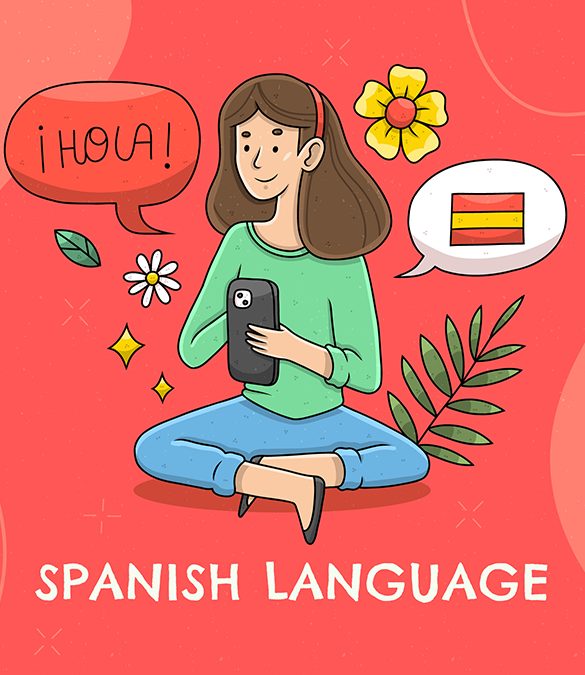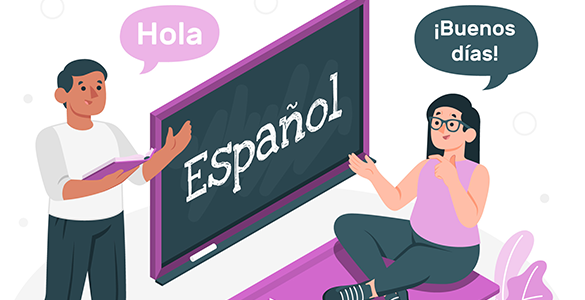Rosetta Translation provides a full range of Spanish translation services to companies in London and worldwide.

Rosetta Translation is a leading multi-sector Spanish translation specialist and its areas of expertise include the following:
Legal translation, Financial translation, Technical translation, Medical translation
We assign every single translation to the most appropriate specialised team of highly qualified Spanish translators, proofreaders and editors, thus making sure of a consistent and excellent quality of Spanish translation in each of these areas.
Combined with our use of translation technology and our extraordinary flexibility as regards client needs, this results in the professional and reliable Spanish translation service that our regular customers expect and value.
We also provide Spanish interpreting services in London and worldwide.
For a free instant quote, please contact us at any of our local offices in London, Shanghai, New York, Paris or Luxembourg.
También puede encontrar información en español sobre nuestros servicios de traducción en Londres.
Rosetta Translation is one of the few translation companies that hold both the prestigious ISO 9001:2015 certification as well as the DIN EN 15038 norm, the only accreditation specifically designed for translation services. Our customers can therefore rest completely assured of the consistent and excellent quality of our Spanish translations.
Our Spanish Translations can of course be certified, notarised and legalised to meet your exact requirements.


Whether Spanish-English translation assignment is complex and heavy in industry-specific jargon, or more basic in nature, Rosetta Translation always has experienced translators on hand to deliver, with expertise in a number of areas, from medical terminology to technical jargon.
As an internationally aware company, we operate as worldwide a service for our English translation as we do for our other languages. This means that we can provide English in any of the many existing dialects, whether you need British English, American English, Australian English, even Jamaican English, we have the know-how and the expertise.
Spanish is the primary language in 20 countries worldwide. As of 2020, it is estimated that about 463 million people speak Spanish as a native language. However, Spanish spoken on one side of the Atlantic is different from that spoken on the other side.

As opposed to what many people believe, linguistic variations can make all the difference when it comes to understanding the spoken and written languages of a given country, as they have the power to directly interfere with the understanding of a language. European Spanish is different from Latin American Spanish, and there are further, more subtle differences between various Latin American countries.
Translation is not a mere reproduction of a text in another language. The purpose of translation is to adapt a text to the needs of a given language and a specific culture. Thus, a small detail can make a huge difference.
Let’s see some differences between Spanish from Spain and Spanish from Latin American countries…
TÚ, USTED or VOS?
The Spanish language is one of great pronoun diversity and intricacies.
There are three different ways to say ‘you’ in Spanish.
*The everyday use of the subject pronouns ‘vos’ and ‘tú’ vary by country, some of them strictly use one form or the other, while others use them interchangeably.
Some examples:
I’m fine, you?
Voseo: Estoy bien, ¿vos?
Tuteo: Estoy bien, ¿tú?
Where are you from?
Voseo: ¿De dónde sos?
Tuteo: ¿De dónde eres?
Tell me about your favourite film.
Voseo: Contame sobre tu película favorita.
Tuteo: Cuéntame sobre tu película favorita.
One of the factors that contributed to the spread of voseo was the presence of viceroyalties in Latin America. The regions of Latin America in which viceroyalties were funded the earliest, and thus kept closer contact with the grammatical prescriptions of Spain, were those who developed pronominal systems without voseo. Conversely, those who were initially isolated from Spain and received viceroyalty funding many years later retained the use of voseo. Countries that were funded early, such as Mexico, Peru, and the Caribbean nations, do not use ‘vos’, and those that were not, such as Argentina and Uruguay, remain strong voseantes today.
Other interesting translation differences between European Spanish and Latin American Spanish
Use of past tenses
I haven’t eaten breakfast today.
Spain: Hoy no he desayunado.
Latin America: Hoy no desayuné.
Vocabulary (depending on which country you find yourself in, you will be confronted with different names for the same thing)
“Bus”
Spain: autobús
Colombia: bus
México: camión
Puerto Rico & D.R.: guagua
Argentina: colectivo
“Pen”
Spain: bolígrafo or just boli
Mexico: pluma
Colombia: esfero
Argentina: lapicera
“Apartment”
Spain: piso
Latin America: departamento or apartamento






What is the UN French Language Day? On 20 March, we once again celebrate UN French Language Day, a global celebration of linguistic diversity and cultural exchange. Created by the United Nations in 2010, this day is to remind us …


© 2025 All Rights Reserved